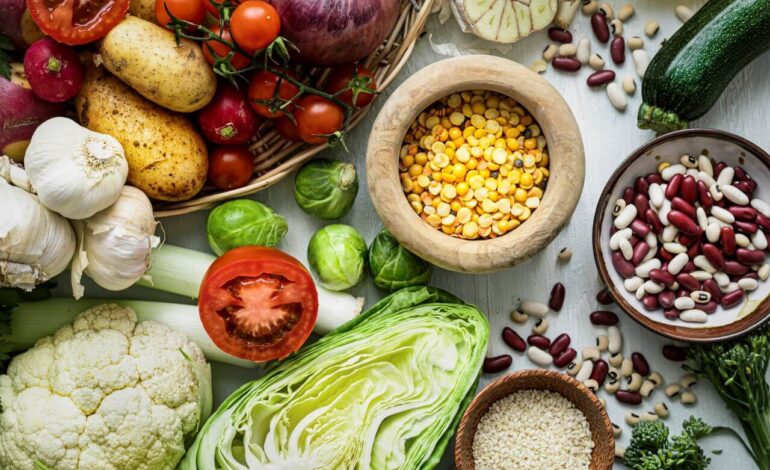Green Gastronomy: Exploring Sustainable Food Practices in India
Recently, the Indian food industry has been significantly moving towards achieving sustainability goals. India is the world’s second most populous country in the world and soon will occupy the top position. With this, India has the major responsibility to provide safe and nutritious food to everyone, while keeping the environment in check. India was once a food-scarce nation and has undergone various famines in history, but India has come a long way and is now a food-surplus country. India is now feeding its people efficiently as well, and its exports to other countries are increasing day by day. Indian cuisine is diverse and plays a crucial role in shaping global food practices. In this blog, we will find the realm of “green gastronomy” and discover sustainable food practices emerging across the Indian subcontinent.
A Glimpse of Eco-friendly Initiatives Across Indian Food Industry:
India’s food processing sector is vast and it is projected to reach 535 billion dollars by 2025-26. With this, food packaging demands also increased and it is also experiencing a massive growth rate of 14.8%. As the majority of food packaging is made of plastic, which poses a threat to the environment, the Indian food industry is now adopting eco-friendly packaging materials which are made from corn plastic, bamboo, wood and plant fibers, and mushroom packaging which can replace polystyrene. The Indian Government also took initiatives like Plastic Waste Management Rules and Extended Producer Responsibility to reduce and restrict the use of plastics. The FSSAI took the initiative to reduce its plastic footprint which includes a ban on single-use plastic, the development of environmentally friendly substitutes, and establish an effective plastic collection and recycling system.
Indian food industries are now adopting eco-conscious practices like locally sourcing ingredients, minimizing food waste as much as possible, and using sustainable transportation and logistics due to which many food companies are now switching to EVs for dispatching of food. Food industries in India are also moving towards using biodegradable packaging and harnessing renewable energy.
Innovative Approaches in Agriculture and Logistics in India:
A considerable amount of the population of India is involved in agriculture practices. As a result, requirements like chemical fertilizers and pesticides shot up, which are usually not good for the environment but give quick results. Nowadays, with the changing climate and increasing pollution, agriculture in India is turning towards more eco-friendly and organic. Now farmers are starting to switch their chemical fertilisers to organic manure. Though growing organic produce takes more time and effort, farmers in India are more careful towards the environment and consider the conservation of natural resources as something very crucial. By keeping this in mind, many small businesses are coming forward to produce materials required for organic farming, like organic manure, vermicompost, etc. Not only this, various AgriTech startups are coming to the surface, providing revolutionary farming practices that are infused with digital technologies. Indian AgriTech startups are now very successful and they provide precision farming, quality management, supply chain/market linkage, and digital traceability. Many agriculture institutes in India are involved in research to make farming practices more sustainable. They are also providing solutions for climate-smart practices, through which they can provide information on climate variability and they can target to enhance productivity while minimizing environmental impact. Some examples include drought-resistant crops, efficient irrigation, and soil health management.
Indian food industries are also focusing on efficient distribution and sustainability in the supply chain. Gradually, food industries are switching their delivery fleet to EVs and reducing their dependency on fuel-based vehicles. Various food companies are working on their cold chain infrastructure, they are working on developing robust cold storage and transportation networks, ensuring that perishable foods reach consumers without spoilage.
Indian Traditional Cuisine – A Door to Sustainable Consumption and Environmental Stewardship
Indian cuisine is very rich and diverse, and recently, ranked fifth among the world’s cuisine. Indian cuisine has now increased its global acceptance, and such is the impact of Indian food, that everyone around the world is shifting towards plant-based foods. Since from past times, the making of Indian food always involved sustainable practices and is more focused on producing as little waste as possible. Indian cuisine solely relies on locally sourced ingredients, encouraging consumption of seasonal produce, which reduces the carbon footprint associated with transportation.
The majority of Indians follow vegetarianism and veganism, so, the consumption of cereals, legumes, lentils, vegetables, fruits, and dairy products is the foundation of Indian cuisine. Indian diet is a plant-based diet, which reduces the environmental impact associated with meat production, which includes deforestation and greenhouse gas emissions. Indian cuisine comprises different kinds of spices and herbs, which add flavor to the food. Spices also have medicinal properties, which leads to more healthier and sustainable cooking. Not only this, Indian cooking is more focused on waste management and focuses on utilizing leftover food in some other dishes. Indian cooking also involves repurposing and reusing peels of some fruits and vegetables as well. Hence, waste management of such kind creatively aligns with conscious consumption. Overall, Indian food is not only home to diverse food choices and aromatic blends in the vegetarian category, but also encourages us how to be kind to nature by cooking food mindfully, supporting local farmers, doing waste management effectively while cooking food, and embracing sustainability in cooking methods.
Conclusion:
It is now concluded that “green gastronomy” is not just a trend, but a shift towards a more sustainable and equitable food system. India is a country where food is deeply connected to culture and tradition, it is a major part of the celebration of heritage and diversity, but at the same time, embraces sustainable food practices. A more greener and resilient future for food in India and the world is ahead of us, if we support local farmers, reduce food waste, and promote plant-based eating.
Whether it is innovative sustainability solutions for your food business, starting a plant-based food venture, or having any other food ideas in mind, do not hesitate to contact Tech4Serve today…!!







